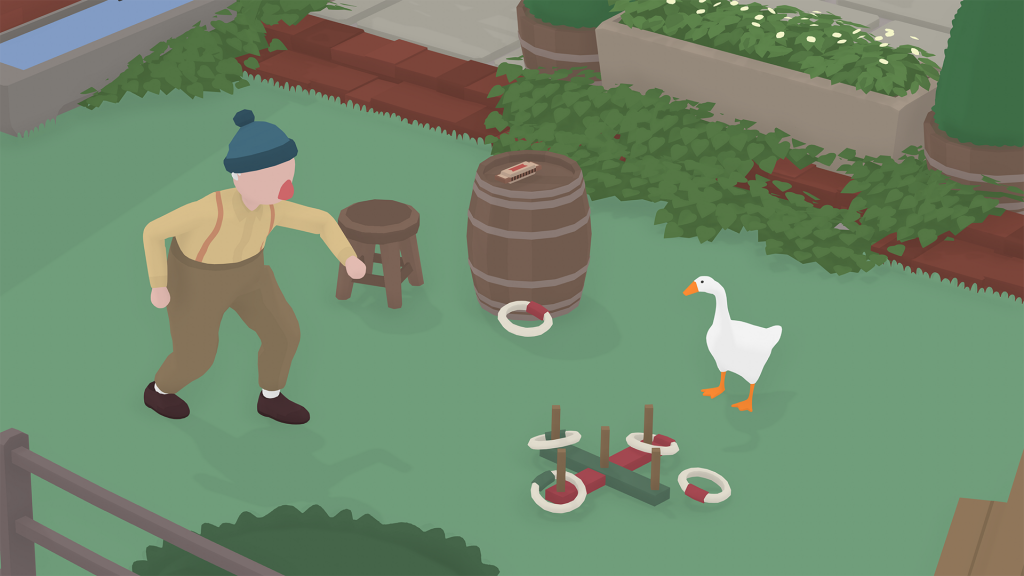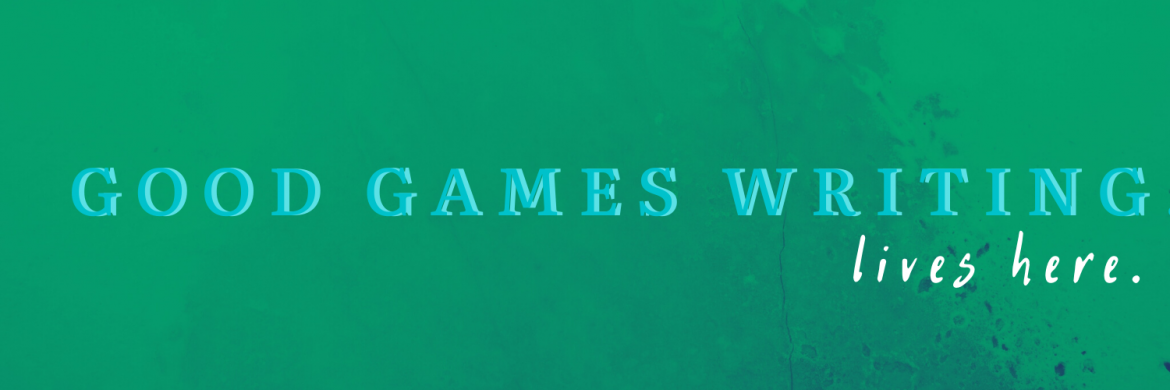The best writing from around the web.
Good Games Writing Weekly is a round-up of the best writing on games and related fields from around the web. Some themes may be for older audiences.
It was a week of surprises: There was the revelation that a new Paper Mario game is only two months away, a Ghost of Tsushima “State of Play” livestream captivated the Internet, and Tony Hawk’s Pro Skater 1 and 2 are being remade by Vicarious Visions.
On that note, much has been said about the music of those earlier Tony Hawk games. On Twinfinite, Jesse Vitelli likens the series and its music to the rite of passage that is “[s]kating around town listening to heavy punk songs and getting kicked out of places that didn’t like skateboarders”. There’s a youthful innocence in seeing these games remade: Michael Higham argues this on GameSpot as he recalls his time growing up in urban SoCal and the prevailing skater culture he may or may not have been a poseur in. The Tony Hawk Pro Skater games gave him an in to the scene that matured into an appreciation of the music:
[W]hen I play a THPS game today, those are the things that run through my mind, and the reasons why many of us hold these games so dear. Skating, music, fashion, and video games all intersected at THPS, giving kids like me an identity that influenced their formative years, and in some cases, our values.
Animal Crossing continues to dominate pop culture discourse.
Rob Heiret, one of the fine folks who localized New Horizons, tweeted out some insights into the puns and writing of the game. “If you’ve played the game, you’re tired of the sea bass joke. I get it. *I’M* tired of the sea bass joke, and I wrote it,” says Heiret. There’s plenty of nuggets in the thread that are worth reading.
On Launcher, Imran Khan reports on how one group celebrates Ramadan in the game: “Prayer is done in the direction of Mecca, but in the virtual space of Animal Crossing, how does one decide which direction that is?” The answer to that question speaks both to the power of tradition and of virtual spaces.
It’s not all New Horizons, though, as Jay Castello reports on the players still enjoying New Leaf. The reporting showcases a different kind of games media, where the new shiny thing isn’t at the heart of the story, and instead, a community that opts to stay within a familiar ecosystem is featured.
Over on IGN, Tom Marks chastises Nintendo for the ongoing issue of Joy-Con drift, likening it to the infamous “red ring of death” that plagued the Xbox 360.

Public funding of art has often been associated with statues in public places or public broadcasters. Ana Diaz dives deep on how videogame creators are able to access these public funds, including some of the potential pitfalls, pulling back the curtain on funding in a way that is rarely exposed. Plus, there’s Untitled Goose Game in there, an unparalleled success story that makes the article all the more interesting.
Indie gaming platform Itch.io has been giving tabletop makers a boost, according to Caitlin Galiz-Rowe, who notes Google+’s “closure in early 2019 was a blow to the creators who had become used to using it – which made Itch, and all of its social networking-adjacent features, all the more appealing.” The interviews dig into a range of benefits offered by the marketplace including its comparatively low fee structure.
Over on Uppercut, Nic Reuben interviews the composers of Sayonara Wild Hearts and Ape Out, using it as a lens to consider alternative music formats, including vinyl.
Even in digital form, games offer something that’s often attributed to the resurgence of vinyl in the music space: touch. There’s a language crossover here between academics, artists, and critics working in both games and music; words like “haptics” and “kinesthetics” apply to both spaces.
Cyberpunk may be futuristic in nature, but conversations around it echo the conversations of vinyl above: an aesthetic that some see as stale while others see as refreshing. Jack Yarwood explores this issue on Fanbyte, again relying on developer interviews, to interrogate themes of consciousness, societal transition, human nature, and our impact on the natural environment.
Here on Liftoff!, Elijah Beahm explores grief as it presents in the Amazing Spider-Man 2 movie tie-in game, highlighting that Peter Parker, not Spidey, is central to the message.
For the first time since Uncle Ben’s death, Peter faces the emotional turmoil he’s let fester beneath. No more denial or one-liners can sidestep the pain. He’s never been faced with the prospect of returning even an ounce of the suffering he was dealt. It’d be so easy to give in to his anger. When he tries reasoning with Cassidy, he learns he helped inspire the man through his own actions. It deflates him.
Meanwhile, Ian Boudreau argues we’re seeing the birth of a new genre: Zone games. Escape from Tarkov and Hunt: Showdown are the forebears of the new genre, which includes features like permanent character progression, asymmetric loadouts, and the threat of losing everything. Boudreau goes on to make the case that games in this emerging genre have a certain aesthetic and thematic content, largely attributed to 1979’s Stalker. It’s a fascinating read.
The Overwatch League also presents its own content, much like major sports leagues, and it’s usually strong. Aron Garst’s interview with the Guangzhou Charge’s Nero reveals the Californian’s ways of adapting to living in Seoul. As we increasingly see expats all over various eSports leagues, insights from articles such as these will be worth following, as when things go wrong, well, bad things happen.
Finally, Mega Man Legends has been popping up in video content this week, and you could do worse than spending time with Retronauts or the Continue Podcast.
That’s it for this week’s Good Games Writing weekly! If you see something worth sharing don’t hesitate to hit us @GoodWritingVG on Twitter for our consideration.
Quick hits:
Beahm, Elijah. “Unmasking Peter Parker: Grief and Loss in Amazing Spider-Man 2” (Liftoff!: May 14, 2020) <liftoffmag.com/unmasking-peter-parker-grief-and-loss-in-amazing-spider-man-2/>.
Boudreau, Ian. “Shadows of Chernobyl: tracing the inspiration of Escape from Tarkov” (PCGamesN: May 12, 2020) <www.pcgamesn.com/escape-from-tarkov/stalker-zone-games>.
Castello, Jay. “While Others Look to New Horizons, This Community is Sticking With Animal Crossing: New Leaf” (Fanbyte: May 11, 2020) <www.fanbyte.com/features/animal-crossing-new-leaf-community-new-horizons/>.
Diaz, Ana. “How public arts funding helps developers make unique, more diverse games” (The Verge: May 13, 2020) <www.theverge.com/platform/amp/21256048/public-arts-funding-games-untitled-goose-game-mutazione>.
Galiz-Rowe, Caitlin. “Indie video game platform Itch.io has given tabletop RPG designers a new way to thrive” (Dicebreaker: May 13, 2020) <www.dicebreaker.com/topics/itchio/feature/itch-indie-tabletop-rpg>.
Garst, Aron. “Nero’s New Routines Are Helping Him Adjust to Life Abroad” (Overwatch League: May 12, 2020) <overwatchleague.com/en-us/news/23426172>.
Higham, Michael. “We Revere Tony Hawk’s Pro Skater Because It Helped Form Our Identity” (GameSpot: May 16, 2020) <www.gamespot.com/articles/we-revere-tony-hawks-pro-skater-because-it-helped-/1100-6477347/>.
Khan, Imran. “This is Ramadan inside Animal Crossing: New Horizons” (Launcher: May 15, 2020) <www.washingtonpost.com/video-games/2020/05/15/ramadan-animal-crossing/>.
Marks, Tom. “3 Years Later, Joy-Con Drift is Still a Huge Problem” (IGN: May 11, 2020) <www.ign.com/articles/3-years-later-joy-con-drift-is-still-a-huge-problem>.
Reuben, Nic. “Soundscapes As Stories: How Games Are Changing How We Experience Music” (Uppercut: May 15, 2020) <uppercutcrit.com/soundscapes-as-stories/>.
Vitelli, Jesse. “Tony Hawk Pro Skater’s Soundtrack Will Transports Us to a Better Time” (Twinfinite: May 13, 2020) <twinfinite.net/2020/05/tony-hawk-pro-skaters-soundtrack-will-transport-us-to-a-better-time/>.
Yarwood, Jack. “How Cyberpunk Games Are Thriving Beyond 2077” (Fanbyte: May 15, 2020) <www.fanbyte.com/features/beyond-cyberpunk-2077/>.
